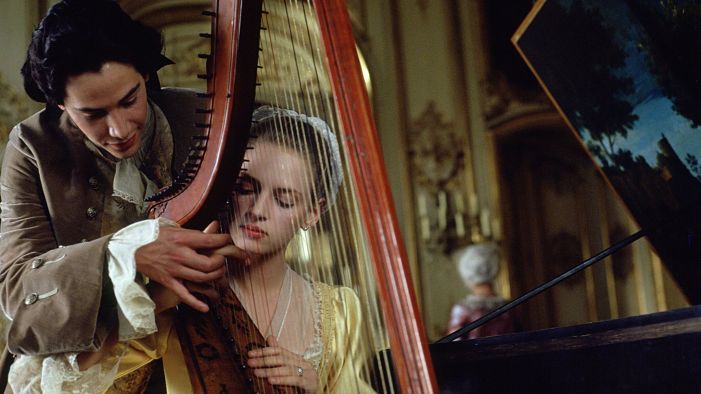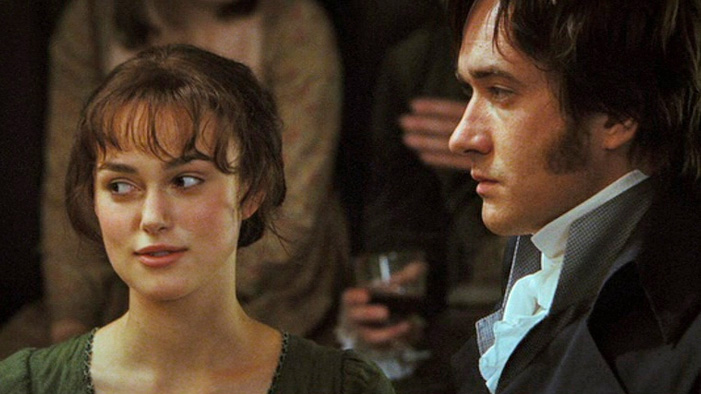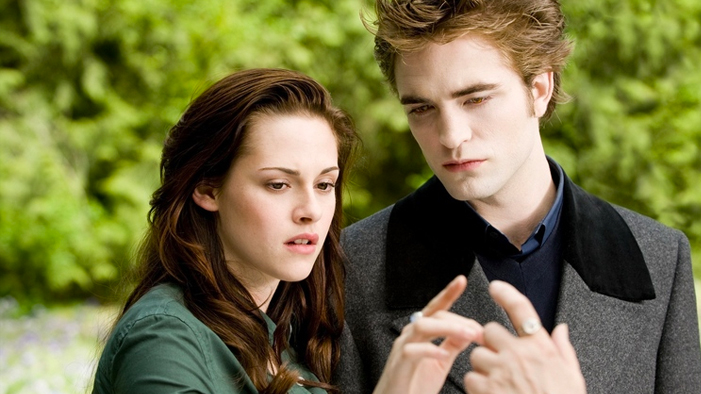6 Extremely Romantic Moments in Literature

Let’s keep our standards high, people. An Instagram like is not romance! Expect nothing less than the A++ caliber wooing below. Did I miss any other moments especially epic? Please share any glaring omissions from this list.
- When Rhett Butler lays one on Scarlett O’Hara in Margaret Mitchell’s Gone with the Wind:
Before she could withdraw her mind from its far places, his arms were around her, as sure and hard as on the dark road to Tara, so long ago. She felt again the rush of helplessness, the sinking yielding, the surging tide of warmth that left her limp. And the quiet face of Ashley Wilkes was blurred and drowned to nothingness. He bent back her head across his arm and kissed her, softly at first, and then with a swift gradation of intensity that made her cling to him as the only solid thing in a dizzy swaying world. His insistent mouth was parting her shaking lips, sending wild tremors along her nerves, evoking from her sensations she had never known she was capable of feeling. And before a swimming giddiness spun her round and round, she knew that she was kissing him back.
- When Haidée and Juan cause a “heart-quake” in Lord Byron’s Don Juan (Fun fact: Juan here is pronounced Joo-an.):
They look’d up to the sky, whose floating glow
Spread like a rosy ocean, vast and bright;
They gazed upon the glittering sea below,
Whence the broad moon rose circling into sight;
They heard the wave’s splash, and the wind so low,
And saw each other’s dark eyes darting light
Into each other — and, beholding this,
Their lips drew near, and clung into a kiss;A long, long kiss, a kiss of youth, and love,
And beauty, all concentrating like rays
Into one focus, kindled from above;
Such kisses as belong to early days,
Where heart, and soul, and sense, in concert move,
And the blood’s lava, and the pulse a blaze,
Each kiss a heart-quake, — for a kiss’s strength,
I think, it much be reckon’d by its length.
- When Gatsby kisses Daisy (novel’s ending notwithstanding) in F. Scott Fitzgerald’s The Great Gatsby:
His heart beat faster and faster as Daisy’s white face came up to his own. He knew that when he kissed this girl, and forever wed his unutterable visions to her perishable breath, his mind would never romp again like the mind of God. So he waited, listening for a moment longer to the tuning fork that had been struck upon a star. Then he kissed her. At his lips’ touch she blossomed like a flower and the incarnation was complete.
- When Captain Wentworth finally declares his love for Anne Elliot in Jane Austen’s Persuasion:
“I can listen no longer in silence. I must speak to you by such means as are within my reach. You pierce my soul. I am half agony, half hope. Tell me not that I am too late, that such precious feelings are gone forever. I offer myself to you again with a heart even more your own than when you almost broke it, eight years and a half ago. Dare not say that man forgets sooner than woman, that his love has an earlier death. I have loved none but you. Unjust I may have been, weak and resentful I have been, but never inconstant. You alone have brought me to Bath. For you alone, I think and plan. Have you not seen this? Can you fail to have understood my wishes? I had not waited even these ten days, could I have read your feelings, as I think you must have penetrated mine. I can hardly write. I am every instant hearing something which overpowers me. You sink your voice, but I can distinguish the tones of that voice when they would be lost on others. Too good, too excellent creature! You do us justice, indeed. You do believe that there is true attachment and constancy among men. Believe it to be most fervent, most undeviating, in F. W.”
- When Vicomte de Valmont admits to experiencing “physical pain” when Madame Marie de Tourvel leaves the room in Pierre Ambrose Laclos’ Dangerous Liaisons:
“Now, I’m not going to deny that I was aware of your beauty. But the point is, this has nothing to do with your beauty. As I got to know you, I began to realize that beauty was the least of your qualities. I became fascinated by your goodness. I was drawn in by it. I didn’t understand what was happening to me. And it was only when I began to feel actual, physical pain every time you left the room that it finally dawned on me: I was in love, for the first time in my life. I knew it was hopeless, but that didn’t matter to me. And it’s not that I want to have you. All I want is to deserve you. Tell me what to do. Show me how to behave. I’ll do anything you say.”
- When Mr. Headstone tells Lizzie Hexam that she put a spell on him in Charles Dickens’ Our Mutual Friend:
“You know what I am going to say. I love you. What other men may mean when they use that expression, I cannot tell; what I mean is, that I am under the influence of some tremendous attraction which I have resisted in vain, and which overmasters me. You could draw me to fire, you could draw me to water, you could draw me to the gallows, you could draw me to any death, you could draw me to anything I have most avoided, you could draw me to any exposure and disgrace. This and the confusion of my thoughts, so that I am fit for nothing, is what I mean by your being the ruin of me. But if you would return a favorable answer to my offer of myself in marriage, you could draw me to any good – every good – with equal force.”














